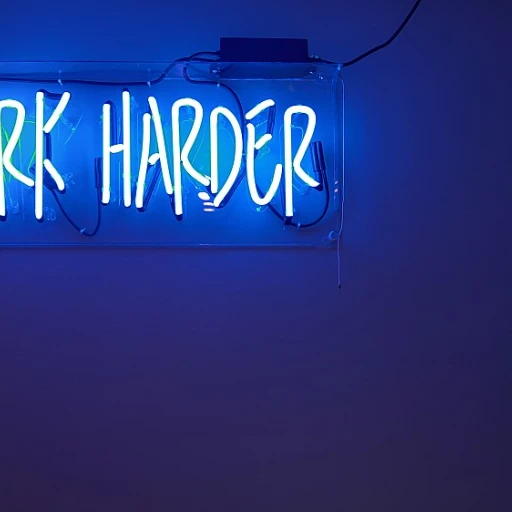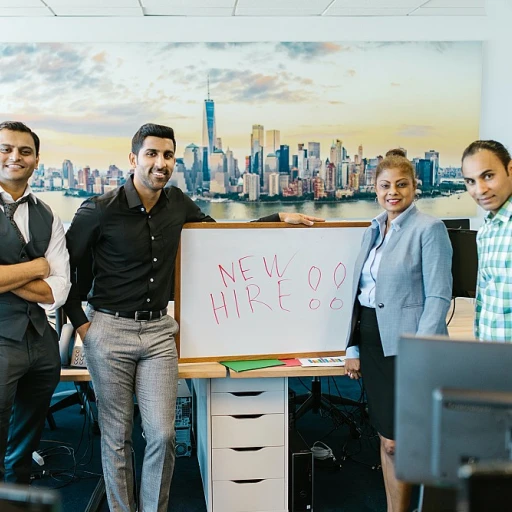
Understanding the importance of teamwork in HR interviews
The Value of Teamwork in HR Interviews
In HR job interviews, teamwork is more than a buzzword—it’s a core competency that employers actively seek. The ability to work effectively with team members, contribute to group goals, and foster a positive work environment is essential for employee performance and organizational growth. Interviewers often use the review process to assess how candidates demonstrate collaboration, communication skills, and problem solving in real-world situations.
Why Teamwork Matters for Performance Reviews
Performance reviews frequently highlight teamwork as a key area for evaluation. Strong team performance is linked to higher quality work, improved decision making, and greater overall success. When employees consistently show constructive feedback, effective time management, and a willingness to support others, it reflects positively on both individual and team performance. These qualities are often discussed using specific review phrases and feedback during the review process.
- Collaboration: Working together helps achieve shared goals and encourages growth among team members.
- Communication: Clear and open communication skills are vital for resolving conflicts and ensuring tasks are completed efficiently.
- Constructive Feedback: Providing and receiving feedback helps identify areas improvement and supports continuous improvement.
- Problem Solving: Teams that collaborate effectively are better equipped to handle challenges and deliver quality results.
Employers want to see evidence of these skills in your performance review examples and interview answers. Using the right review comments and example phrases can help you stand out during the interview process. If you’re looking for creative ways to highlight team success and boost team spirit, check out these creative ideas for hilarious office awards that can inspire positive feedback and recognition in your workplace.
Key elements of strong teamwork performance review phrases
What Makes a Teamwork Review Phrase Effective?
When it comes to performance reviews, the right phrases can make a big difference in how feedback is received and understood. Effective teamwork review phrases go beyond generic compliments. They highlight specific skills, behaviors, and outcomes that contribute to team success and employee growth.- Clarity and Specificity: Good review comments clearly describe the employee’s contribution to the team, such as collaboration, communication skills, or problem solving.
- Balanced Feedback: Strong phrases combine positive feedback with constructive suggestions for improvement, supporting both recognition and areas improvement.
- Focus on Impact: The best review phrases connect individual actions to team goals and overall performance, showing how one person’s work supports the work environment and team performance.
- Consistency and Fairness: Using consistent language across performance reviews ensures fairness in the review process and helps employees understand expectations.
- Action-Oriented Language: Effective phrases encourage growth and improvement, guiding employees toward better decision making, time management, and quality work.
Key Elements to Include in Teamwork Review Phrases
- Collaboration: Reference how the employee works with team members to achieve common goals.
- Communication: Highlight the employee’s ability to share information, listen, and provide constructive feedback.
- Problem Solving: Mention contributions to overcoming challenges and finding solutions as a team.
- Reliability: Note how consistently the employee completes tasks and supports team performance.
- Adaptability: Recognize flexibility in changing work environments and willingness to improve processes.
Examples of teamwork performance review phrases for self-assessment
Practical Self-Assessment Phrases for Teamwork Reviews
When preparing for HR job interviews, being able to articulate your teamwork skills during a performance review is crucial. Self-assessment phrases help you reflect on your contributions, highlight your strengths, and identify areas for improvement. Using clear and specific language demonstrates self-awareness and a commitment to growth. Here are some example phrases you can use to describe your teamwork performance during self-assessment:- I consistently collaborate with team members to achieve shared goals and deliver quality work on time.
- My communication skills help maintain a positive work environment and ensure all employees feel heard during group tasks.
- I regularly provide constructive feedback to support team improvement and encourage open dialogue.
- I am proactive in identifying areas for improvement and suggest solutions to enhance team performance.
- I adapt to changing priorities and support colleagues in managing tasks efficiently, contributing to overall team success.
- I seek feedback from team members to improve my own performance and contribute to the growth of the team.
- I help facilitate problem solving and decision making during group projects, ensuring all voices are considered.
- I take responsibility for my tasks and support other employees when needed to meet performance management objectives.
- I encourage collaboration and help create a constructive atmosphere for team performance reviews.
How to use teamwork phrases when answering behavioral questions
Bringing Teamwork Phrases into Behavioral Interview Answers
Using effective teamwork performance review phrases during HR job interviews can help you stand out. When answering behavioral questions, it’s important to show how your skills and actions contributed to team success and improvement. Here’s how you can weave these phrases naturally into your responses:- Describe your role clearly: Start by outlining your responsibilities and how you contributed to the team’s goals. For example, “I consistently supported team members by sharing constructive feedback and encouraging open communication.”
- Highlight collaboration and problem solving: Mention how you worked with others to overcome challenges. Try, “We collaborated closely to improve our work environment and ensure quality work, especially when facing tight deadlines.”
- Showcase communication skills: Use phrases like, “I facilitated regular team meetings to align on tasks and provide performance feedback, which improved our decision making and time management.”
- Emphasize growth and improvement: Reflect on areas improvement and how you contributed to employee growth. For instance, “I provided review comments that helped team members identify areas for improvement and supported their professional development.”
- Demonstrate positive impact: Share results, such as, “Our team’s collaboration led to consistently high employee performance and exceeded our performance management goals.”
Sample Phrases for Behavioral Answers
Here are some example phrases you can adapt for your own interview answers:| Situation | Example Phrase |
|---|---|
| Supporting team members | I offered constructive feedback to help team members improve their skills and achieve our shared goals. |
| Problem solving | We worked together to solve complex tasks, ensuring quality work and a positive work environment. |
| Communication | I encouraged open communication among employees to streamline the review process and boost team performance. |
| Performance review | I used performance review phrases to provide clear, actionable feedback that supported employee growth. |
| Time management | By delegating tasks effectively, I helped the team consistently meet deadlines and improve overall performance. |
Common mistakes to avoid when discussing teamwork in interviews
Missteps That Can Undermine Your Teamwork Discussion
When discussing teamwork in HR job interviews, it’s easy to fall into common traps that can weaken your performance review comments or make your collaboration skills seem less credible. Here are some pitfalls to watch out for:- Using Vague Phrases: Avoid generic statements like “I’m a team player” without providing specific examples. Performance review phrases should highlight your unique contributions to team success and demonstrate your problem solving or communication skills in action.
- Overemphasizing Individual Achievements: While it’s important to showcase your strengths, focusing only on personal accomplishments can make it seem like you don’t value collaboration. Balance your feedback by mentioning how you supported team members and contributed to shared goals.
- Ignoring Areas for Improvement: Only mentioning positive feedback or quality work can come across as lacking self-awareness. A strong review process includes acknowledging areas improvement and showing how you worked to improve team performance or your own employee performance.
- Forgetting Constructive Feedback: Effective performance management involves both praise and constructive feedback. If you only discuss what went well, you miss the chance to show growth and a willingness to learn from review comments.
- Neglecting Communication Skills: Teamwork isn’t just about completing tasks together. It’s about how you communicate, manage time, and make decisions as a group. Be sure to include example phrases that reflect your ability to foster a positive work environment and facilitate open communication among employees.
Tips for Stronger Teamwork Interview Responses
- Use specific review examples to illustrate your collaboration and problem solving skills.
- Show how you consistently contribute to team goals and support employee growth.
- Balance positive feedback with constructive feedback and areas for improvement.
- Highlight your role in improving team performance and the overall review process.
- Demonstrate your understanding of performance reviews as tools for both recognition and improvement.
Adapting teamwork phrases for different HR roles and industries
Tailoring Teamwork Review Phrases to Fit Different HR Contexts
When discussing teamwork during HR job interviews, it’s essential to adapt your performance review phrases to the specific industry and HR role you’re targeting. Each environment values different aspects of team performance, communication skills, and collaboration. Here’s how you can adjust your approach for maximum impact:
- Corporate HR: Focus on structured collaboration, decision making, and performance management. Use phrases that highlight your ability to drive employee performance, facilitate constructive feedback, and manage team goals. Example: “Consistently led team members through complex tasks, ensuring quality work and timely completion.”
- Startups: Emphasize flexibility, problem solving, and rapid improvement. Phrases should reflect adaptability and a proactive approach to areas improvement. Example: “Worked closely with employees to identify growth opportunities and adapt review processes to evolving business needs.”
- Nonprofit Sector: Highlight mission-driven teamwork, positive work environment, and collaboration across diverse groups. Review comments might include: “Fostered open communication among team members, supporting constructive feedback and shared goals.”
- Manufacturing or Operations: Stress efficiency, time management, and safety in team settings. Example phrases: “Encouraged team success by streamlining tasks and providing clear, actionable feedback to improve performance.”
- Tech Industry: Focus on innovation, cross-functional collaboration, and continuous improvement. Example: “Facilitated knowledge sharing and constructive review comments to enhance team performance and drive project success.”
Adapting Language for Different Levels and Functions
The level of the HR role also influences the language you use in performance reviews. For entry-level positions, emphasize learning, communication, and willingness to receive feedback. For senior roles, focus on leadership, mentoring, and strategic decision making. Tailor your review examples to show how you’ve contributed to both team and employee growth, regardless of your position.
| HR Role | Example Teamwork Review Phrase |
|---|---|
| Entry-Level | "Actively participated in team meetings, offering ideas and seeking feedback to improve work processes." |
| Mid-Level | "Supported team members by sharing expertise and providing constructive feedback during performance reviews." |
| Senior/Manager | "Led cross-functional teams to achieve organizational goals, consistently delivering quality work and fostering a positive work environment." |
By customizing your teamwork review phrases for the specific HR role and industry, you demonstrate not only your collaboration skills but also your understanding of what drives team success in that environment. This approach helps you stand out during the review process and positions you as a thoughtful, adaptable employee ready for growth and improvement.













